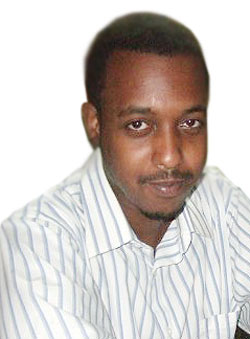Last week began with the Presidential elections here in Rwanda that proceeded efficiently and calmly much to the chagrin of some of Rwanda’s detractors. The ‘climate of fear’ and much vaunted ‘repression’ were nowhere in evidence.


Last week began with the Presidential elections here in Rwanda that proceeded efficiently and calmly much to the chagrin of some of Rwanda’s detractors. The ‘climate of fear’ and much vaunted ‘repression’ were nowhere in evidence.
On Wednesday, the grenade terrorist struck again killing and injuring people whose only mistake was that they were trying to get home after work. There is no rest for the wicked it would appear.
Worldwide, Mother Nature appeared to be going on rampage with Russia and Ukraine experiencing the hottest summer in their combined recorded histories accompanied by wild fires.
In Pakistan, the torrential monsoon rains continued to cause flooding all along the Indus River affecting an estimated 14 million people with numbers set to get higher. The next big threats for the people displaced by the floods are likely to be cholera and hunger in quick succession.
Appeals for an international humanitarian response are getting ever more frantic out of Islamabad. This has been a terrible year for Pakistan.
The news out of Australia was that the Prime Ministerial campaign was going on in earnest in a race that pits the Liberal Party’s Tony Abbot, nicknamed the ‘mad monk’, against the Labour Party’s Julia Gillard, the lady that ousted her fellow party member and former Prime Minister Kevin Rudd.
What I found interesting about the electoral jousting in Australia was the debate on broadband policy with the two candidates fronting two opposite visions of Australia’s digital future.
Ms. Gillard was all for investment in a new and faster network while Mr. Abbott believed that the country could keep up by merely improving on the existing one. He was cruelly exposed by a reporter who discovered that the candidate had no knowledge of what ‘peak speed’ meant.
In Rwanda’s quest to become the ICT hub of Africa and possibly a major player on the world ICT scene, I fear that too often there is not very much open discussion on exactly what sort of hub we aspire to and what the best policies to take us there are.
For sure developments like the upcoming Wireless Broadband, the installing of a national fibre optic network and e-medicine, as examples, are positive but there can never be an ICT hub without a huge investment in Research and Development, in a word – innovation.
Without the scientists of Rwanda constantly coming up with innovations that can be sold in one of the fastest moving industries of them all, ICT, this country will be resigned to simple becoming a user of technology forever spending large sums of money to keep up with the rest of the world instead of a leader in the industry, a place that draws in the brightest minds, the largest investment and is constantly setting trends, at least on the continental level.
It really is a question of whether Rwanda becomes a traveller, in a really fast vehicle, on the digital superhighway or whether it owns certain sections of the road.
Oscar Kabbatende is a lawyer


